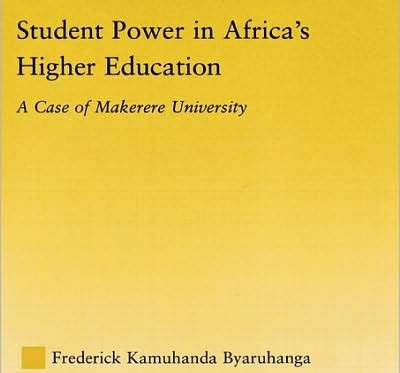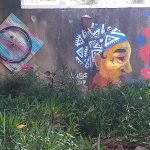In the discussion about the change of names of Kampala streets, someone mentioned the change of the name of Northcote hall to Nsibirwa hall at Makerere University. Another wondered why most halls of residence still go by “colonial names” such as Mitchel, Livingstone, Mary Stuart, and Complex. Of course, there are those which go by African names such as Lumumba, Nkrumah, and Africa.
The actual history of the name change from Northcote to Nsibirwa is however more complex and I do not think it is “glorious” for progressive forces that I believe the decolonization of names campaign would like to align with. In one line, the name of that hall was changed as a strategy to break the backbone of student activism at Makerere. Actually, a better way to “tell” that story could be to quote from Fredrick Byaruhanga’s Student Power in Africa’s Higher Education: A Case of Makerere University:
“The Northcote Saga started around mid-day on May 4, 1996, when the Students of Livingstone Hall were in the heat of preparing for their traditional buddy party with the female Africa Hall. The celebration is commonly known as the “Afrostone Day. Their rival Northcote Hall students, carrying their Hall flag and garbed in camouflage gear, invaded the Livingstone Hall kitchen where the food was being prepared, and poured pepper and broken glass pieces in the two cooking pots full of matooke (green bananas).
Fortunately, the cooks were present to watch the heinous act and were able to forestall a tragedy. Northcote Hall had gained a traditional reputation of being vociferously rambunctious in behaviour, a behaviour that was enshrined in its belligerent culture.
Following the Afrostone event, the university disciplinary committee convened a meeting, whose purpose was to assess the situation and make recommendations to the university council. The committee denounced Northcote’s culture of untoward hooliganism and recommended that the Hall be closed and all its students become non-resident.
In the light of the disciplinary committee’s recommendation, the university council held its own meeting (August 12–14, 1996) and corroborated the committee’s recommendation to close Northcote Hall. The council’s decision was predicated on not only Northcote’s long-time and well-known prankish behaviour, but also on its students’ obduracy in refusing to name the Afrostone culprits.
As a measure to curtail Northcote’s historical behaviour, the council passed a resolution to the effect that non-resident students attached to other halls of residence were free to apply and become residents of Northcote. And the 720 Northcoters would become non-resident.
When the academic year began in October, the former Northcote students returned to a university that was reluctant to accommodate them. Even managers of the non-resident hostel accommodation were very hesitant to offer them residence maintaining that they were not ready to inherit the Northcote problem.
In the meantime, some of the students met on Saturday, October 5, and resolved to seek and provide information leading to the Afrostone culprits. Such information would be surreptitiously passed on to university authorities, hoping that their forthrightness would cast off the web of suspicion and resentment. As a result, 16 names were provided and some were apprehended.
However, the council’s decision to close Northcote was never rescinded, and the hall was designated as Hall X. It was later renamed Nsibirwa Hall. Northcote’s closure, obviously, did not sit well with students, especially its former residents. At their Wednesday, October 23 general assembly, students revisited the Northcote question and demanded that the hall be reopened.
In exasperation, a number of students dashed and forced their way into former Northcote Hall, grabbed the keys from the custodian, causing a pandemonium, which resulted in some damages. Meanwhile, as the students kept vigil at the hall, police were called in, and by the following day, Thursday, October 24, 1996, an epidemic of rioting had spread all the way to Lumumba Hall, where the students had a brawl with the police.
By October 25, the dust had settled and classes had resumed, but not without consequences: 35 students including the guild president, his vice president, Northcote Hall chairman, and Northcote Hall secretary for interior, were arrested. At an emergency university council meeting, which was held on Thursday, the culprits were expelled from the university, and the rest of the students were ordered to return to class or face expulsion as well.
On Saturday, October 26, the guild parliament held its own meeting in which it resolved to end the strike. At the meeting, student leaders acknowledged their culpability and decided to seek pardon from the President Yoweri Museveni, as well as the university administration.”
I do not know if the renaming of Northcote can be called “decolonization”. Plus the choice of the name, Nsibirwa itself speaks volumes, doesn’t it? While Martin Luther Nsibirwa’s legacy at Makerere is usually valorized, I am not sure the Buganda freedom fighters and defenders of the throne are proud of the circumstances under which he (Nsibirwa) as Katikkiro earned the fame of a builder of Makerere.
Nsibirwa was indeed martyred for among other things, enabling the colonial government to “compulsorily” acquire land that was then given to Makerere. The progressive activists of the day thought it was reactionary of Nsibirwa to put colonial interests ahead of Buganda’s.
But, let the discussion continue.
This post was created with our nice and easy submission form. Create your post!






